| |||||
| Centuries: | |||||
|---|---|---|---|---|---|
| Decades: | |||||
| See also: | Other events of 1313 List of years in Ireland | ||||
Events from the year 1313 in Ireland.
| |||||
| Centuries: | |||||
|---|---|---|---|---|---|
| Decades: | |||||
| See also: | Other events of 1313 List of years in Ireland | ||||
Events from the year 1313 in Ireland.

The chancellor of the exchequer, often abbreviated to chancellor, is a senior minister of the Crown within the Government of the United Kingdom, and head of Treasury. As one of the four Great Offices of State, the chancellor is a high-ranking member of the British Cabinet.

The Lord Chancellor, formally titled Lord High Chancellor of Great Britain, is a senior minister of the Crown within the Government of the United Kingdom. The lord chancellor is the minister of justice for England and Wales and the highest-ranking Great Officer of State in Scotland and England, nominally outranking the prime minister. The lord chancellor is appointed and dismissed by the sovereign on the advice of the prime minister. Prior to the union of England and Scotland into the Kingdom of Great Britain, there were separate lord chancellors for the Kingdom of England and the Kingdom of Scotland. Likewise, the Lordship of Ireland and its successor states maintained the office of lord chancellor of Ireland until the establishment of the Irish Free State in 1922, whereupon the office was abolished.
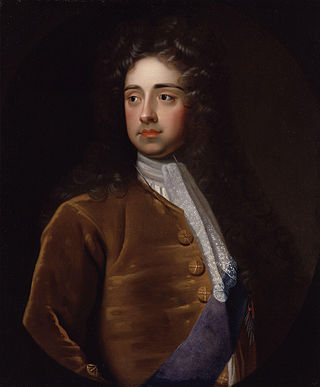
The Lord High Treasurer was an English government position and has been a British government position since the Acts of Union of 1707. A holder of the post would be the third-highest-ranked Great Officer of State in England, below the Lord High Steward and the Lord High Chancellor of Great Britain.
The Lord High Chancellor of Ireland was the highest judicial office in Ireland until the establishment of the Irish Free State in 1922. From 1721 to the end of 1800, it was also the highest political office of the Irish Parliament: the Chancellor was Speaker of the Irish House of Lords. The Lord Chancellor was also Lord Keeper of the Great Seal of Ireland. In all three respects, the office mirrored the Lord High Chancellor of Great Britain.
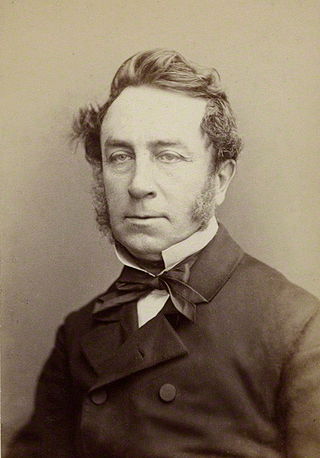
Thomas O'Hagan, 1st Baron O'Hagan, KP, PC (Ire), QC, was an Irish lawyer and judge. He served as Lord Chancellor of Ireland from 1868 to 1874 and again from 1880 to 1881.

James Henry Mussen Campbell, 1st Baron Glenavy,, was an Irish lawyer, politician in the British Parliament and later in the Oireachtas of the Irish Free State. He was also Lord Chancellor of Ireland.
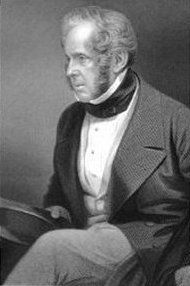
The Liberal government of the United Kingdom of Great Britain and Ireland that began in 1859 and ended in 1866 consisted of two ministries: the second Palmerston ministry and the second Russell ministry.
Edmund, Earl of Rutland was the fourth child and second surviving son of Richard Plantagenet, 3rd Duke of York, and Cecily Neville. He was a younger brother of Edward, Earl of March, the future King Edward IV who came to the throne in 1461, the year after Edmund's death. He was born in Rouen, then the capital of English-occupied France and his father held the office of Lieutenant of France. He was killed at the age of 17 either during or shortly after the Battle of Wakefield, during the Wars of the Roses.

Whig Lord John Russell led the government of the United Kingdom of Great Britain and Ireland from 1846 to 1852.

After campaigning against the foreign policy of the Beaconsfield ministry, William Gladstone led the Liberal Party to victory in the 1880 general election. The nominal leader of the Party, Lord Hartington, resigned in Gladstone's favour and Gladstone was appointed Prime Minister of the United Kingdom for a second time by Queen Victoria. He pursued a policy of parliamentary reform, but his government became wildly unpopular after the death of General Gordon in 1885. Gladstone was held responsible, and resigned, leaving the way free for the Conservatives under Lord Salisbury to form a government.
Events from the year 1186 in Ireland.

The Court of Chancery was a court which exercised equitable jurisdiction in Ireland until its abolition as part of the reform of the court system in 1877. It was the court in which the Lord Chancellor of Ireland presided. Its final sitting place was at the Four Courts in Dublin, which still stands.
Events from the year 1513 in Ireland.
Events from the year 1385 in Ireland.
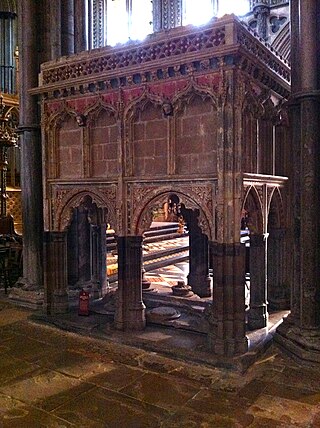
John Hotham was a medieval Chancellor of the Exchequer, Lord High Treasurer, Lord Chancellor and Bishop of Ely. He was also the effective Governor of Ireland for a time.
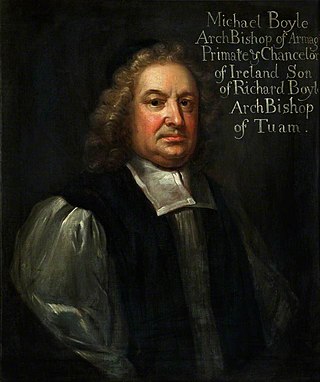
Michael Boyle, the younger was a Church of Ireland bishop who served as Archbishop of Dublin from 1663 to 1679 and Archbishop of Armagh from 1679 to his death. He also served as Lord Chancellor of Ireland, the last time a bishop was appointed to that office.
Sir Maziere Brady, 1st Baronet, PC (Ire) was an Irish judge, notable for his exceptionally long, though not particularly distinguished tenure as Lord Chancellor of Ireland.
Thomas Cranley DD a.k.a. Thomas Craule was a leading statesman, judge and cleric in early fifteenth-century Ireland, who held the offices of Chancellor of Oxford University, Archbishop of Dublin and Lord Chancellor of Ireland.
Richard Talbot was an English-born statesman and cleric in fifteenth-century Ireland. He was a younger brother of John Talbot, 1st Earl of Shrewsbury. He held the offices of Archbishop of Dublin and Lord Chancellor of Ireland. He was one of the leading political figures in Ireland for more than thirty years, but his career was marked by controversy and frequent conflicts with other statesmen. In particular, the Talbot brothers' quarrel with the powerful Earl of Ormonde was the main cause of the Butler–Talbot feud, which dominated Irish politics for decades, and seriously weakened the authority of the English Crown in Ireland.
Events from the year 1377 in Ireland.